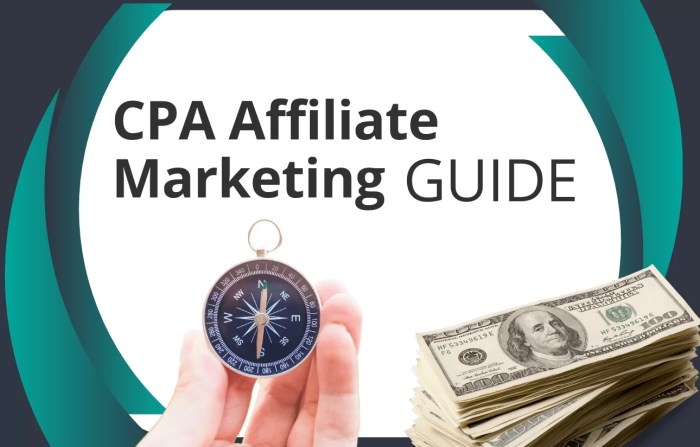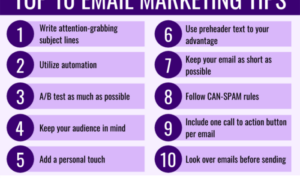Affiliate Marketing Guide leads you into the lucrative world of online partnerships, where merchants and affiliates thrive. Dive in for a journey filled with strategies, success stories, and ethical considerations that will elevate your game.
Affiliate Marketing Overview: Affiliate Marketing Guide

Affiliate marketing is a performance-based marketing strategy where businesses reward affiliates for bringing customers through their own marketing efforts. Affiliates earn a commission for each sale or lead generated through their referral links. This form of marketing is popular in the digital realm due to its cost-effective nature and ability to reach a wider audience.
Benefits of Affiliate Marketing
- Low Risk for Merchants: Merchants only pay affiliates when a sale or lead is generated, reducing the risk of advertising costs with no returns.
- Passive Income for Affiliates: Affiliates can earn passive income by promoting products or services they believe in without the need to create their own products.
- Increased Reach: Affiliate marketing allows merchants to reach a larger audience through the network of affiliates who promote their products or services.
- Cost-Effective Marketing: Affiliate marketing is a cost-effective way for businesses to promote their products without the need for a large marketing budget.
Successful Affiliate Marketing Programs
- Amazon Associates: Amazon’s affiliate program is one of the largest and most successful in the world, allowing affiliates to earn commissions on sales generated through their referral links.
- Shopify Affiliate Program: Shopify offers an affiliate program for individuals who promote their e-commerce platform, earning commissions for each referral that signs up for a paid plan.
Impact of Affiliate Marketing
“Affiliate marketing spending in the U.S. is projected to reach $8.2 billion by 2022, showing the growing impact and importance of this marketing strategy in the digital landscape.”
Getting Started with Affiliate Marketing
When diving into the world of affiliate marketing, it’s essential to understand the key players involved, how to choose the right niche or product to promote, how to join affiliate programs, and why creating quality content is crucial.
Key Players in Affiliate Marketing
- Merchants: These are the companies or individuals who have products or services to sell. They partner with affiliates to promote their offerings.
- Affiliates: Affiliates are the marketers who promote the products or services of merchants in exchange for a commission for each sale or lead generated.
- Customers: Customers are the ultimate end-users who purchase the products or services that affiliates promote.
Choosing a Niche or Product to Promote
- Research your interests and passions to find a niche that excites you.
- Consider the profitability of the niche and the demand for the products or services within it.
- Look for products that align with your target audience’s needs and preferences.
Joining Affiliate Programs and Networks
- Sign up for affiliate programs directly through merchants or join affiliate networks that connect affiliates with a variety of merchants.
- Review the terms and conditions of each program carefully to ensure they align with your marketing strategies and goals.
- Utilize tracking links provided by affiliate programs to monitor the performance of your promotions.
Importance of Quality Content in Affiliate Marketing
Creating high-quality content is essential for attracting and engaging your audience, establishing trust, and driving conversions. Whether it’s through blog posts, videos, social media, or email marketing, your content should provide value, solve problems, and offer relevant information to your audience.
Strategies for Successful Affiliate Marketing
To be successful in affiliate marketing, it’s crucial to implement effective strategies that will help you maximize your earnings and build a loyal audience. Here are some key strategies to consider:
Utilize Review Sites
One popular strategy in affiliate marketing is to create review sites where you can provide detailed and honest reviews of products or services. By offering valuable insights and recommendations, you can attract a targeted audience interested in making a purchase.
Implement Email Marketing
Email marketing is another powerful strategy for affiliate marketers. By building an email list of subscribers who are interested in your niche, you can promote relevant products or services directly to them, increasing your chances of earning commissions.
Engage on Social Media
Social media platforms offer a great opportunity to engage with your audience and promote affiliate products. By creating valuable content, sharing your affiliate links, and building a strong relationship with your followers, you can drive traffic and increase conversions.
Build Trust with Your Audience
Building trust with your audience is essential in affiliate marketing. By being transparent, honest, and providing valuable content, you can establish credibility and loyalty among your followers, leading to higher conversion rates and long-term success.
Optimize Affiliate Links and Track Performance
It’s important to optimize your affiliate links by using tracking software to monitor performance metrics such as clicks, conversions, and commissions. By analyzing this data, you can identify which strategies are most effective and make adjustments to improve your results.
Examples of Effective Affiliate Marketing Campaigns
Some successful affiliate marketing campaigns include partnering with influencers, creating engaging video content, and leveraging strategies to drive organic traffic. By studying these examples and adapting them to your own marketing efforts, you can increase your chances of success in the affiliate marketing industry.
Legal and Ethical Considerations in Affiliate Marketing

When engaging in affiliate marketing, it is crucial to adhere to legal obligations and ethical standards to maintain transparency and trust with your audience.
Legal Obligations for Affiliates
- Affiliates must comply with disclosure requirements set by the Federal Trade Commission (FTC) to inform their audience of any financial relationship with the products or services being promoted.
- Affiliates should clearly disclose any sponsored content or affiliate links within their promotional materials to avoid misleading consumers.
Ethical Considerations in Affiliate Marketing
- Avoid promoting products solely for financial gain without considering the value they offer to your audience.
- Be honest and transparent about your affiliate relationships to build trust with your followers and maintain credibility.
Tips for Ensuring Transparency and Authenticity, Affiliate Marketing Guide
- Provide genuine and unbiased product reviews to help your audience make informed decisions.
- Clearly label affiliate links and sponsored content to distinguish them from regular recommendations.
Examples of Ethical Affiliate Marketing Practices
- Disclosing affiliate relationships in blog posts or social media captions to inform your audience about any potential biases.
- Creating valuable content that prioritizes the audience’s interests over profit margins to establish credibility and trust.












